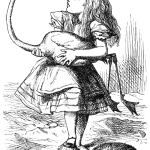Last updated on: November 6, 2016 at 10:23 am
By
CNA Daily News
Vatican City, Nov 6, 2016 / 03:23 am (CNA/EWTN News).- On Sunday Pope Francis held a special Mass held for prisoners inside St. Peter’s Basilica, telling them that while paying the price for their crimes is necessary, they must never lose hope for the future or the desire for true freedom. In his Nov. 6 homily, the Pope pointed to how in his letter to the Romans St. Paul refers to God as “the God of hope.” By saying this, “Paul almost seems to tell us that God too hopes. While this may seem paradoxical, it is true: God hopes! His mercy gives him no rest,” just like the father waiting for the return of the Prodigal son, or the shepherd looking for his lost sheep. “So if God hopes, then no one should lose hope. For hope is the strength to keep moving forward,” he said. “It is the power to press on toward the future and a changed life. It is the incentive to look to tomorrow, so that the love we have known, for all our failings, can show us a new path.” Hope is ultimately proof of the power of God’s mercy, Francis said, adding that mercy “invites us to keep looking ahead and to overcome our attachment to evil and sin through faith and abandonment in him.” The Jubilee of Prisoners, celebrated for prisoners and their families, penitentiary employees, prison chaplains and various associations that assist both inside and outside of the prison system, took place Nov. 5-6 in Rome as part of Pope Francis’ wider Jubilee of Mercy. Roughly 4,000 people attended, of which 1,000 were prisoners from 12 countries around the world. Though the majority of the prisoners were from Italy, a Lutheran delegation was present from Sweden. Around 50 prisoners and ex-prisoners were also present from the U.S., including a group of 22 from Cincinnati. Inmates of all types were included among the participants, including minors, people on house arrest, and those with varying sentences. Though Pope Francis has taken a special interest in individual cases of death row inmates, none were present during the Jubilee event. Ahead of Sunday’s Mass St. Peter’s Basilica opened at 7:30 a.m. for the jubilee event, which included singing, testimonies given by 4 participants and a rosary ahead of Pope Francis’ arrival. All tickets for the Mass, as usual for Jubilee events, were completely free of cost. After Mass, attendees made their way to the “Reception Celebrating Mercy” in the Vatican’s Paul VI Hall, for which no ticket was required. During Mass, it was the prisoners themselves who carried out various roles in the liturgy, such as lectoring. The hosts used during Communion were also made by prisoners of the Opera maximum security prison in Milan as part of “The Meaning of Bread” project organized for the Jubilee of Mercy. In his homily, Pope Francis said the day’s readings offered a strong message of a hope “that doesn't delude.” Hope, he said, “is a gift of God” and as such “is placed deep within each human heart in order to shed light on this life, so often troubled and clouded by so many situations that bring sadness and pain.” The roots of this hope must be nourished so as to bear fruit in the certainty “of God’s closeness and compassion, despite whatever evil we have done,” he said, adding that “there is no corner of our heart that cannot be touched by God’s love.” Mercy, the Pope continued, is something that must be thought about “more deeply.” While breaking the law certainly involves “paying the price,” particularly when it comes to losing one’s freedom, at the same time “hope must not falter.” “Paying for the wrong we have done is one thing, but another thing entirely is the breath of hope, which cannot be stifled by anyone or anything.” Francis noted that at times “a certain hypocrisy” leads people to view prisoners as merely “wrongdoers, for whom prison is the sole answer.” “We don’t think about the possibility that people can change their lives; we put little trust in rehabilitation,” he said, explaining that in doing this we forget “that we are all sinners and often, without being aware of it, we too are prisoners.” Often times we are “locked up within our own prejudices or enslaved to the idols of a false sense of well-being,” he said. “We get stuck in our own ideologies or absolutize the laws of the market even as they crush other people.” In these moments, we imprison ourselves behind walls of “individualism and self-sufficiency” and are deprived “of the truth that sets us free,” Pope Francis said, stressing that “pointing the finger against someone who has made mistakes cannot become an alibi for concealing our own contradictions.” While no one can consider themselves just before God, no one can live “without the certainty of finding forgiveness,” he said, and prayed that none of the prisoners present would allow themselves to “held captive by the past!” “By learning from past mistakes, you can open a new chapter of your lives. Let us never yield to the temptation of thinking that we cannot be forgiven,” Francis said. He noted that while there are some wounds that only God can heal, when violence is met with forgiveness “even the hearts of those who have done wrong can be conquered by the love that triumphs over every form of evil.” Pope Francis closed his homily by turning to Mary, praying that she would look upon each of them “with a mother’s love” and intercede so that their hearts “can experience the power of hope for a new life, one worthy of being lived in complete freedom and in service to your neighbor.” Read more














